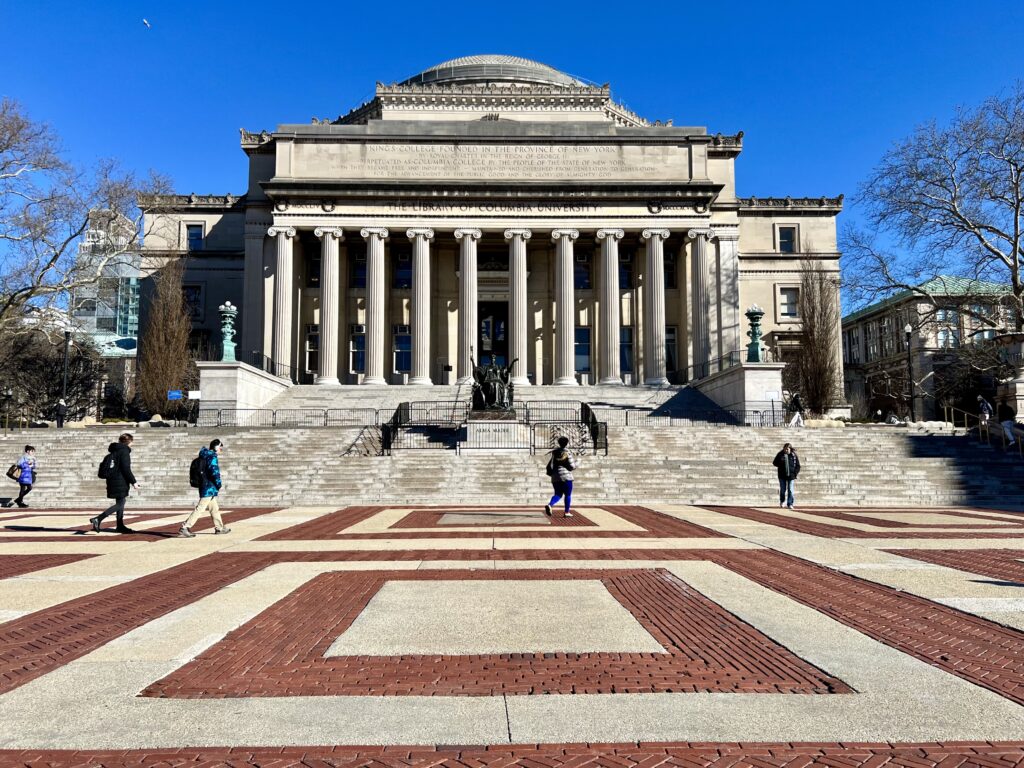Sabbatical Abroad: Is It Worth It?
I have just returned from a truly stimulating three-month sabbatical in New York City, an experience that was both enriching and enlightening. I was based at Columbia University, hosted by the Italian Academy of Advanced Studies in America and the Department of Physics. It was a unique opportunity to immerse myself in a vibrant intellectual community, explore new scientific research directions, and engage with some of the brightest minds in my field and beyond. It also presented an extraordinary opportunity for my family, including my children aged 7 and 11, to be embedded in a different culture, and to live in one of the most exciting cities of the world.
On the other hand, logistical preparations were complex and required meticulous planning and support. The effort required to coordinate this move – identifying host institutions in the same city for my wife and me, finding adequate financial support, obtaining visas for the family, preparing mountains of paperwork, finding housing, enrolling the kids in school, organise non-academic life – was substantial and at times overwhelming. In this post, I briefly reflect on the overall experience to ask: was it all worth it? I hope this discussion will be useful to other academics (and beyond) considering a similar move.

Planning at home institution. The logistics of a sabbatical can vary significantly depending on your institution’s rules. My experience is that academic institutions are willing to let you take a sabbatical as long as you plan meticulously to ensure minimal disruption. This means arranging replacements for your teaching duties well in advance to avoid any negative impacts on your students’ education and your department’s curriculum. If your research involves group members, consider their ability to accompany you, which will depend on available funding. It’s also critical to prepare for all ongoing academic commitments. This might involve finding colleagues who can take over your responsibilities or setting up arrangements for remote participation in essential activities.
Establishing Connections and Securing Resources. Once obtained permission from your home institution, it’s crucial to establish connections with suitable host institutions. My experience is that it is very easy to find colleagues who are willing to host you in principle, but very difficult to find financial support for your visit, due to lack of dedicated budget lines. I was fortunate to receive a fellowship from the Italian Academy for Advanced Studies in America, which helped to cover my travel and staying expenses. If the host institution cannot provide support, look up the opportunities in your field of research, including bi-lateral agreements, national funding agencies, academic grants and fellowships (Fulbright Scholar Program, Guggenheim Foundation, etc.).

Visas and schools. Traveling with family adds another layer of complexity, especially concerning visas and schooling. To us, navigating the visa system felt like a step back in time, with its demand for mountains of documents (wedding certificate, birth certificates, certified translations, ..), the need to send physical passports via ordinary mail, enduring long waiting times, and facing high fees for applications. As for schools, the complexity of the organisation depends strongly on the country you visit. In the U.S., public schools are tied to your residential area, and registration typically can’t be completed until you are physically present. This was one of the most stressful aspects of the sabbatical for us, and although everything went fine in the end, I recommend taking into account this aspect carefully when considering a sabbatical.
Housing. Finding suitable housing that could accommodate a family and was within a reasonable commute to Columbia University involved navigating a competitive real estate market, which was a daunting task in itself. Most host institutions will not directly help you with finding housing, but they will provide a list of resources for you to explore, including websites like https://www.sabbaticalhomes.com/, https://www.vrbo.com/, https://www.homeexchange.com/, with the warning that they don’t take any responsibility in case of problems. Columbia U. and NYU have their own housing, but in our case it didn’t work out as the results of the application is given very close to the date of travel, and most apartments are very small for a family, and unfurnished (some colleagues ended up renting furniture – including bed and dining table and chairs, for several months).
Making it worth it. Once settled, it’s crucial to immerse yourself in the academic and cultural life of your host city. I made it a point to introduce myself and my work early on, giving presentations not only at Columbia but also at other institutions like the Center of Computational Astrophysics, MIT, Harvard, Stonybrook, and Yale. Engaging with the brilliant students, outstanding colleagues, and overall vibrant community at these places was a highlight of my stay. New York City itself is a bustling hub of culture and activity. From theaters and museums to sports events and concerts, the city offers an endless array of experiences. Participating in these activities not only enriched our personal life but also provided a broader context and inspiration for my work.

Final Thoughts. So, is a sabbatical abroad worth it? While it demands a significant investment of time, effort, and financial resources, for me the answer is a resounding yes—if planned carefully. The exposure to new academic environments and cultures is an unparalleled source of inspiration and ideas. The key is to be well-prepared and proactive in engaging with both the academic and local communities. A sabbatical abroad is not just an academic endeavor; it’s a life experience that can broaden your horizons and influence your personal and professional life in unimaginable ways. If you have the opportunity, I highly recommend seizing it.
The post Sabbatical Abroad: Is It Worth It? first appeared on Gianfranco Bertone .